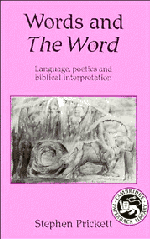4 - The paradoxes of disconfirmation
Published online by Cambridge University Press: 01 March 2011
Summary
Elijah and Dante: The Word and the ‘Voice’
Let us return to the story of Elijah – this time not through New Testament, Patristic, or Romantic spectacles, but, initially, through fourteenth-century ones.
In Canto XXXII, of the Purgatorio Dante, awakening from the pageant of revelation, likens himself to the disciples Peter, James, and John, after the Transfiguration:
Quali a veder de' fioretti del melo
che del suo pome li angeli fa ghiotti
e perpetũe nozze fa nel cielo,
Pietro e Giovanni e Iacopo condotti
e vinti ritornaro alla parola
dalla qual furon maggior sonni rotti,
e videro scemata loro scola
così di Moïsè come d' Elia,
ed al maestro sue cangiata stola;
tal torna' io …
(XXXII: 73–82)As, when brought to see some of the blossoms of the apple-tree that makes the angels greedy for its fruit and makes perpetual marriage-feast in heaven, Peter and James and John were overpowered and came to themselves again at the word by which deeper slumbers were broken and saw their company diminished by both Moses and Elias and their Master's raiment changed, so I came to myself …
The question that had broken Dante's trance, however, was not that of Matthew xvii, 7 (‘Arise and be not afraid’) – the word of Christ that had raised the dead – but is an echo of the Elijah story in I Kings xix ‘What doest thou here?’:
Surgi: che fai?
(XXXII: 72)- Type
- Chapter
- Information
- Words and The WordLanguage, Poetics and Biblical Interpretation, pp. 149 - 195Publisher: Cambridge University PressPrint publication year: 1986



